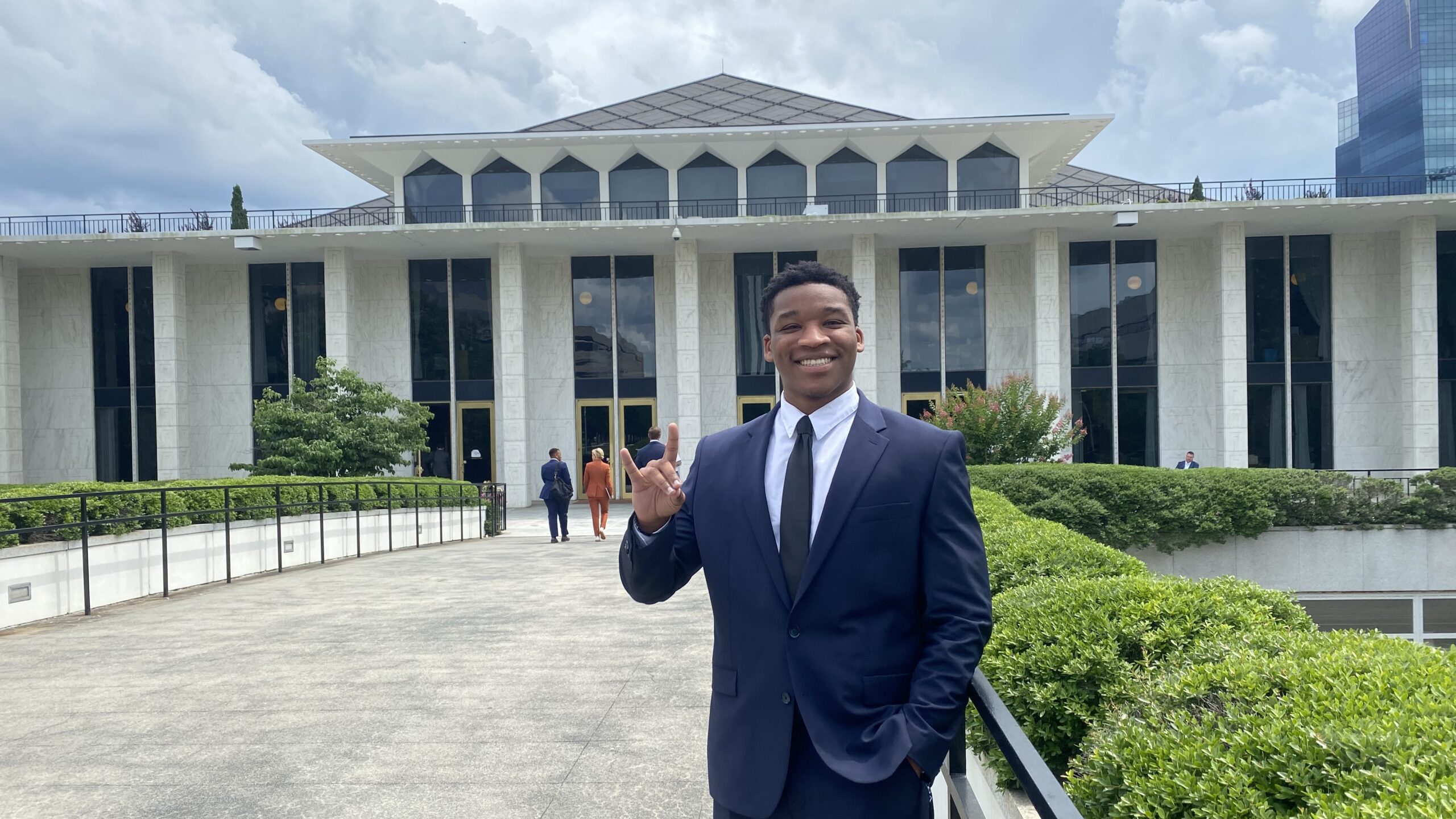The Legislative Internship at the North Carolina General Assembly

Alternating spring semesters, political science students are encouraged to apply for the coveted Legislative Internship at the North Carolina General Assembly (GA). The lucky few selected for this paid internship enroll in 12 credits of coursework while working full time (a minimum of 30 hours/week) at the GA in downtown Raleigh. Five of the eight NC State political science students selected for this internship in spring 2017, Karsin Williard (senior), Emily Walter (senior), Chris Stock (senior), Ridge Mazingo (senior) and Molly Mueller (junior), met with me to share their experiences at the General Assembly.
Overall, the interns seemed to have learned a great deal from their internships. Chris began by stating, “It’s a lot different than being in a classroom.” He also reflected on the work environment, which allowed him to experience firsthand the different sides of government. Ridge added, “I learned more with the hands on experience at the General Assembly than I did in all of college combined. Not only do you learn a ton about public policy and how the state government works but you also make valuable connections.” Molly built upon this, saying, “I think one of the advantages of this program is that we were there almost full time for six months. It was nice to see the entire process and get to know who everyone was.”
When asked what surprised them about state government, Molly noted that her expectations on the influence of representatives was different than expected. “I imagined that the urban/rural divide would be different. I imagined that representatives from big cities would have a greater say, but in the General Assembly it was the opposite because there were so many more rural representatives/members.” Furthermore, she admitted that she thought that it was the senators themselves writing the bills, doing the research, and sitting down eight hours a day writing the actual content of the bills but quickly learned that it requires a team of people. She now fully understands the infrastructure and is aware of all of the different opportunities that exist within the GA. Ridge added, “I expected it to be more of a partisan process than it was.” Molly agreed, “As a senate intern, the only time I felt there was a partisan divide was in the actual senate chambers. Outside of this, everyone who worked in the GA were friends. Emily also thought that the environment was collaborative noting that her representative, a democrat, had good relationships with many republicans, even those that she didn’t necessarily agree with. Moreover, Emily was surprised by the strong impact that policies can have on everyday people, “It was interesting to see just how many interest groups there were and how many issues really mattered to so many different kinds of people. I witnessed everything from social justice to economic issues. I learned that even the smallest policy can affect so many people and their lives.”
Internships are important learning experiences that foster career development. “It gave me a more realistic perception of what goes on there [at the GA],” said Chris. Karsin noted that working in the GA exposed her to a wide variety of roles and jobs, “You see lobbyists, lawyers, action groups, and more all working at the same time.” Some of the interns learned through the experience that they no longer plan to run for office, but that they would like to continue working in the GA. However, for Molly, although she greatly enjoyed her internship experience, it convinced her that she no longer wants to pursue careers in government and politics. Emily was appreciative of the opportunity to self-reflect and cultivate new skills, “I’m still passionate about the same things but now I kind of have a better perspective about how to pursue those and be more successful.”
When asked about the coursework affiliated with the internship, every intern sang the praises of Dr. McLennan’s PS 502 (Legislative Process) class. “It taught me how to be more professional,” said Chris. Emily agreed. “He [Dr. McLennan] taught us these broad skills/how to be professional – speak and interact with legislators – but also he individualized it so we could learn more about ourselves, our emotional intelligence and strengths and weaknesses. It was really beneficial.” Another professor that the interns found incredibly helpful was Dr. Solari. “He went out of his way to get us connected to people there [the GA],” said Karsin.
As far as duties, the interns agreed that there was a lot of administrative work involved in their positions. However, many of them were able to draft letters, write newsletters, attend meetings, and go to senate session. They explained that this was an advantage of being a senate intern as the house interns aren’t allowed on the senate floor.
In conclusion, the interns provided prospective candidates with some advice. Molly stressed the importance of considering whom you will be working with. “If you’re interviewing with multiple offices, consider who the Legislative Assistant is, because you will be mostly working with them. If you really click with LA during your interview, consider working with that office. It really shapes your experience.” Emily recommends that prospective interns look into the issues that offices focus on. “Working with an office that cared about the issues I cared about made the experience so much better because I was passionate about what I was researching.” All agreed that networking is one of the most important things interns can do. They recommend taking advantage of every opportunity including going to committee meetings and events. I think Ridge put it best, “It’s not just about the grades you make but the hands you shake”. Lastly, they encourage all PS majors to apply because there is nothing to lose!
Applications for the spring 2019 Legislative Internship will be available in fall 2018 so stay tuned!
Other political science majors selected for the 2017 Legislative Internship (not pictured): Benjamin Kirkland, Jacqueline Gonzalez, and Christian Jones.


